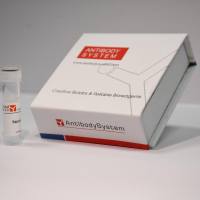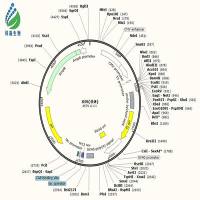Pancreatic cancer is one of the most aggressive human malignancies. One of the leading causes of pancreatic cancer death is metastasis. The early stages of tumor progression and micrometastasis formation have been difficult to analyze and have been hampered by the inability to identify small numbers of tumor cells against a background of many host cells. The intrinsic brightness of fluorescent proteins has been taken advantage of to develop a technology of whole-body imaging of tumors and gene expression in mouse internal organs. Stable transformation with fluorescent protein genes can be effected using lentiviral vectors containing a selectable marker such as neomycin resistance. The cells that stably express fluorescent proteins can then be transplanted into appropriate mouse models. For whole-body imaging, nude mice are very appropriate, the hair does not need to be removed by shaving or depilation. The instruments used are very simple, they need appropriate excitation and emission filters. It is crucial that proper filters be used such that background autofluorescence is minimal. Fluorescent protein-based imaging technology can be used for whole-body imaging of fluorescent cells on essentially all organs.






